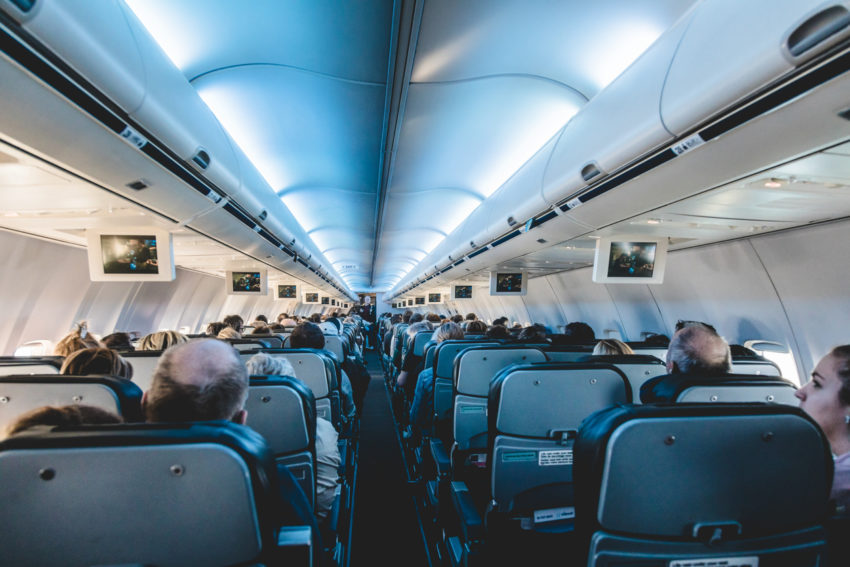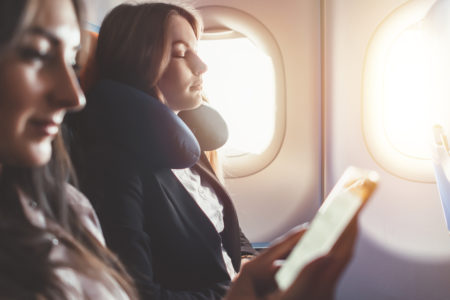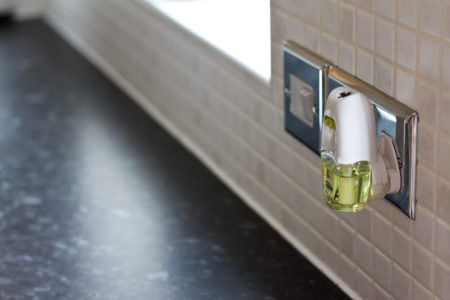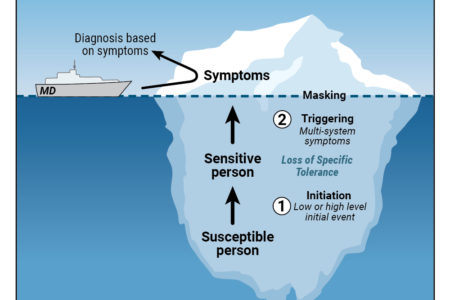
Share On Social!
Fragrance sprays are used to diffuse scents across the country in public bathrooms, office buildings, private residences, and now airline carriers.
While in-flight air fresheners can reduce strong smells, they also can trigger problematic side effects in people who are sensitive to certain chemicals found in those products.
Individuals who undergo symptoms from fragrance exposure could be experiencing Toxicant-Induced Loss of Tolerance (TILT).
Worse, those who are TILTed could experience a range of health effects during their flights now that more planes will use air fresheners.
“Fragrances are to varying degrees toxic, and they are in fact one of the biggest triggers of irritability, mental confusion, and difficulties with concentration or learning,” writes Dr. Claudia Miller, an environmental health professor and leader of the Hoffman TILT program at UT Health San Antonio. “They are, after all, intentionally designed to affect the limbic system.”
Implementing Fragrances on Flights
 The airline industry’s new initiative follows a long line of companies using unique scents as part of brand-driven marketing strategies, according to the San Francisco Chronicle.
The airline industry’s new initiative follows a long line of companies using unique scents as part of brand-driven marketing strategies, according to the San Francisco Chronicle.
Another goal behind this effort is providing customers with the best experience possible and encouraging brand loyalty. United Airlines, Delta Air Lines, and Alaska Airlines have their own scents, as do many airlines outside the United States. More are expected to do the same.
Katherine Wenglikowski, a passenger who regularly flies with United, said she enjoys the recent addition to her trips.
“I’m largely scent challenged and find most overwhelming, but this grapefruit one is working for me,” Wenglikowski told the San Francisco Chronicle. “This latest scent that United is employing, for me, it made using the airplane ever so much more pleasant. Really not bad.”
Still, the underlying health complications could outweigh the benefits in sensitive individuals.
Adverse Reactions to Sprays
Roughly 25% of the ingredients in air freshener products contain Volatile Organic Compounds (VOCs).
These substances are gasses that emit from various chemicals found in products. According to the EPA, when ingested VOCs can trigger many reactions that can include:
- Eye, nose, and throat irritation
- Headaches, loss of coordination, and nausea
- Damage to the liver, kidney, and central nervous system
Not only can these problems result in bodily harm, but they can also lead to a person developing TILT.
This illness results in adverse mental, emotional, and physical consequences, according to researchers at the Hoffman TILT.
One research report showed that 35% of the studied population experienced some form of health complication from fragrance exposure, including respiratory problems, migraine headaches, skin problems, and asthma attacks.
“Fragranced consumer products, such as cleaning supplies, air fresheners, and personal care products, are a leading source of indoor air pollution,” writes Dr. Ray Palmer, an environmental health professor and researcher with the Hoffman TILT program.
Solutions to the Issue
Researchers at Hoffman TILT estimate that many Americans could experience TILT without even realizing that fact.
While doctors and researchers are discovering new information about chemical contact and sensitivity every day, there are steps people can take to reduce exposure in their lives.

Those who would like to discover more about potential TILT triggers can take Hoffman TILT’s BREESI & QEESI tests. These assessments will give an overview of the harmful substances in one’s environment.
A central issue with chemical sensitivity is how it can impact every aspect of a person’s life, according to Dr. Anne Steinmann, a professor at the University of Melbourne, Australia who studies environmental exposures and their adverse effects.
“In addition to the adverse health consequences, exposure to fragranced products imposes significant adverse impacts on workplace productivity and quality of life, including the ability to access public places such as restrooms,” Steinmann writes.
What do you think about fragrances on your flights?
Editor’s Note: This article is part of a collaboration between Salud America! and the Hoffman Toxicant-Induced Loss of Tolerance (TILT) program at UT Health- San Antonio. To find out if you are TILTed due to exposure to everyday foods, chemicals, or drugs, take a self-assessment or learn more about TILT.
By The Numbers
1
Quick Survey
Can help you find out how chemically sensitive you are



